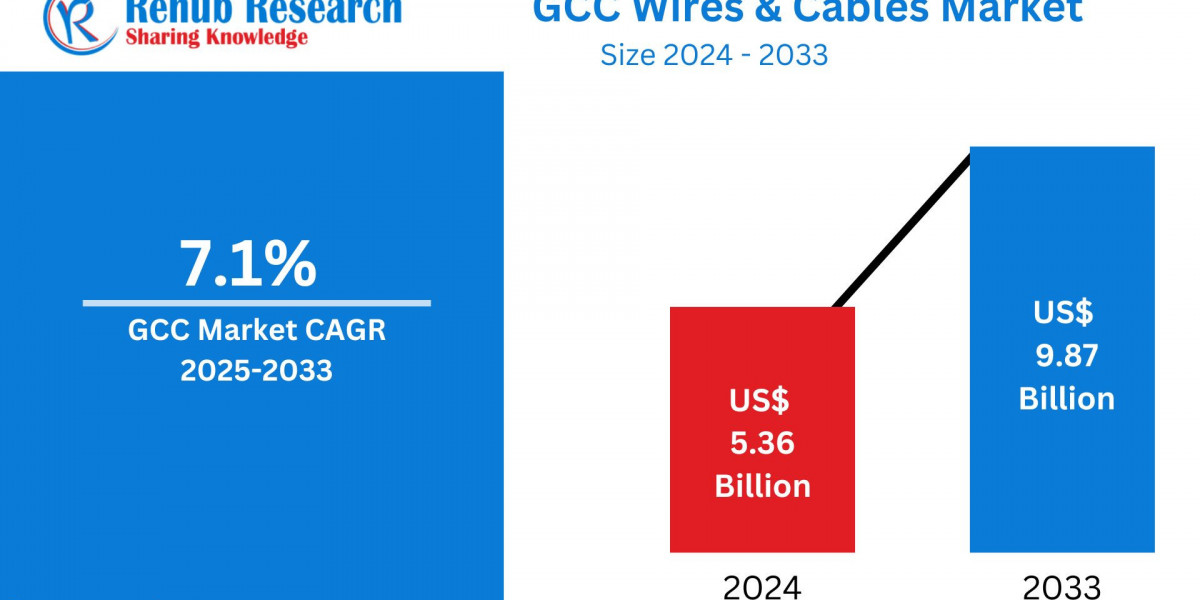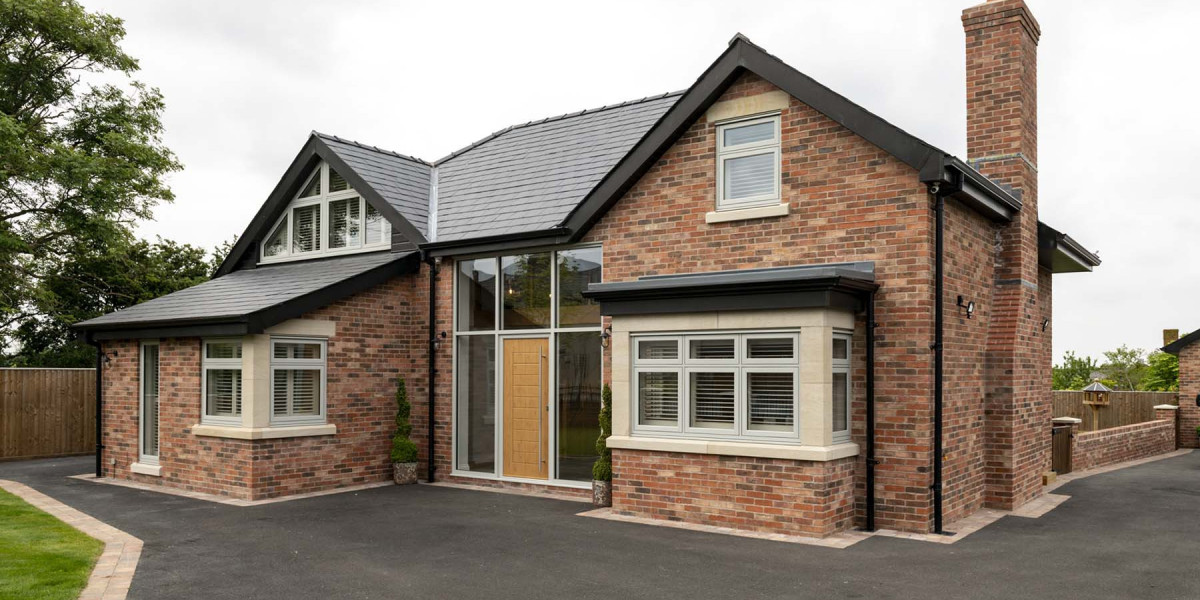According to a comprehensive report by Renub Research, the GCC Wires and Cables Market is expected to grow significantly through 2033, propelled by increasing infrastructure investments, surging electricity demand, technological advancements in cabling systems, and government initiatives toward smart cities and energy diversification. Countries such as Saudi Arabia, UAE, Qatar, and Kuwait are at the forefront of this growth due to their mega infrastructure projects and rapid urbanization.
? To access the full report, click here: GCC Wires and Cables Market
Rapid Infrastructure Development Boosts Market Expansion
Infrastructure development remains a cornerstone of GCC countries’ economic diversification strategies. Governments are investing billions in mega-projects including:
- Saudi Arabia’s NEOM smart city
- UAE’s Expo legacy infrastructure
- Qatar’s World Cup-related urban expansion
- Kuwait’s Silk City project
These developments require extensive deployment of low voltage (LV), medium voltage (MV), and high voltage (HV) cables for utilities, commercial buildings, and transportation networks. The growing need for electricity transmission and distribution infrastructure is directly translating into a surge in wire and cable demand.
Smart City Initiatives and Digital Connectivity Fuel Demand
Smart city initiatives across the Gulf are creating demand for high-performance, fiber-optic, and data cables. Countries in the region are increasingly embracing:
- Smart grids
- High-speed internet
- IoT infrastructure
- 5G rollouts
For example, Saudi Arabia and UAE are investing heavily in nationwide fiber-to-the-home (FTTH) networks and smart utility meters. This shift is accelerating the uptake of structured cabling systems and optical fiber networks, making data and telecom cables one of the fastest-growing segments in the GCC wires and cables market.
Renewable Energy Projects Creating New Avenues
The GCC region is actively investing in renewable energy as part of its commitment to sustainability and carbon neutrality goals. Large-scale solar and wind power projects, like:
- Mohammed bin Rashid Al Maktoum Solar Park (UAE)
- Sakaka PV Solar Power Plant (Saudi Arabia)
- Dumat Al Jandal Wind Farm
...are spurring demand for power cables, especially XLPE insulated and armored cables used in harsh environmental conditions.
These renewable energy infrastructures require specialized, durable, and high-conductivity cables that can efficiently handle varying loads and offer long-term operational reliability.
Surge in Construction and Real Estate Developments
The post-pandemic economic recovery has reignited the GCC construction sector. Mega malls, hotels, residential complexes, and commercial towers are back under development, especially in Dubai, Abu Dhabi, Doha, and Riyadh.
This construction boom is increasing the need for:
- Building wires
- Flexible cables
- Control and instrumentation cables
Moreover, with the growing focus on green buildings, developers are turning toward halogen-free and fire-retardant cables, adding new dimensions to market demand.
Technological Advancements Enhancing Product Efficiency
Technological innovation is driving product differentiation in the wires and cables industry. Modern cabling solutions offer:
- Higher energy efficiency
- Improved heat resistance
- Greater mechanical strength
- Enhanced fire safety standards
Manufacturers in the GCC are increasingly focusing on smart cabling systems integrated with sensors for predictive maintenance, especially in industrial and utility sectors.
The move toward automation in manufacturing plants and intelligent monitoring of electrical networks further fuels the use of advanced cabling technologies.
Government Policies and Local Manufacturing Encourage Market Growth
To reduce import dependency and promote domestic manufacturing, GCC governments are implementing policies that encourage local cable production. Saudi Arabia’s Vision 2030 and UAE’s Operation 300bn strategy are leading this charge.
Local players are benefiting from:
- Tariff protections
- Export incentives
- Local sourcing mandates in public infrastructure projects
Additionally, stringent safety and quality regulations are ensuring that both domestic and imported cables meet international standards such as IEC, BS, and IEEE, fostering consumer trust and reliability.
Key Segments: Power, Telecom, Building, and Industrial Cables
The GCC wires and cables market is segmented across various sectors:
- Power Cables: Both underground and overhead cables used in transmission and distribution.
- Telecom Cables: Fiber optics and coaxial cables for data and telecommunication.
- Building Wires: Cables used in residential, commercial, and public buildings.
- Industrial Cables: Specialized cables for oil & gas, petrochemicals, and heavy industries.
Among these, telecom and industrial cables are witnessing the fastest growth due to rapid digitalization and the high energy demands of industrial operations.
Competitive Landscape: Regional and International Players Drive Innovation
The market features a healthy mix of multinational corporations and regional manufacturers, with players focused on capacity expansion, joint ventures, and R&D investment. Key market participants include:
- Prysmian Group
- Nexans
- Elsewedy Electric
- Saudi Cable Company
- Ducab (UAE)
- Bahra Electric
- Oman Cables Industry
These companies are differentiating themselves through technological innovation, price competitiveness, and customized solutions for the GCC’s diverse climate and infrastructure needs.
Future Outlook: GCC Wires and Cables Market Set for Strong CAGR
As per Renub Research, the GCC wires and cables market is forecasted to grow at a steady compound annual growth rate (CAGR) through 2033. Key growth drivers include:
- Ongoing urbanization and industrialization
- Transition toward clean energy
- Proliferation of digital infrastructure
- Enhanced cross-border power grid connectivity
The market’s long-term success will hinge on innovation, localization, and the ability to serve highly customized infrastructure requirements across each GCC country.
? To explore in-depth insights, segmentation, trends, and forecasts, visit: GCC Wires and Cables Market
New Publish Report:
· Canada Processed Meat Market Size and Share Analysis - Growth Trends and Forecast Report 2025-2033
· Canada Organic Dairy Market Size and Share Analysis - Growth Trends and Forecast Report 2025-2033
About Renub Research
Renub Research is a Market Research and Consulting Company with more than 15 years of experience, especially in international Business-to-Business Research, Surveys, and Consulting. We provide a wide range of business research solutions that help companies make better business decisions. We partner with clients across all sectors and regions to identify their highest-value opportunities, address their most critical challenges, and transform their businesses.
Our wide clientele includes key players in Healthcare, Travel & Tourism, Food & Beverages, Power & Energy, Information Technology, Telecom & Internet, Chemicals, Logistics & Automotive, Consumer Goods & Retail, Building & Construction, and Agriculture. Our core team comprises experienced professionals with graduate, postgraduate, and Ph.D. qualifications in Finance, Marketing, Human Resources, Bio-Technology, Medicine, Information Technology, Environmental Science, and more.
Media Contact
Company Name: Renub Research
Contact Person: Rajat Gupta, Marketing Manager
Phone No: +91-120-421-9822 (IND) | +1-478-202-3244 (USA)
Email: rajat@renub.com
Would you also like a short LinkedIn version of this release or a banner description for social media promotion?








